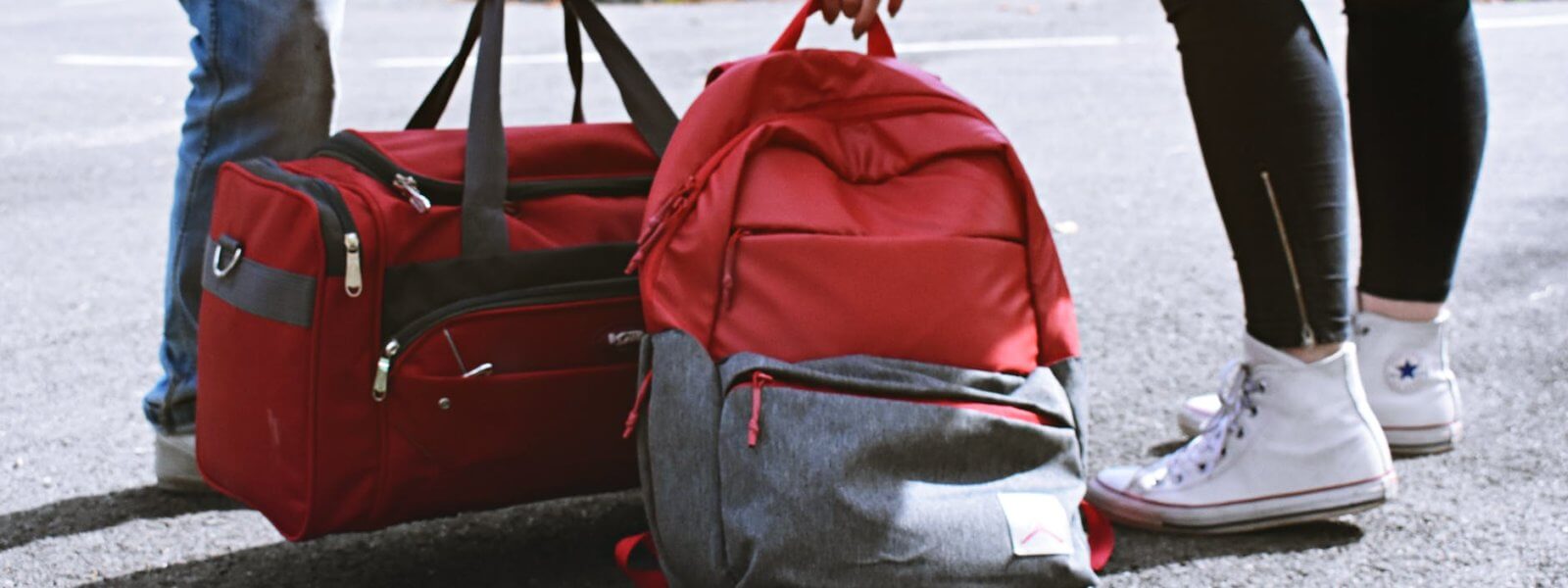

7 Tips for safe traveling: What to know before you go
With the holidays fast approaching, everyone is itching to nail down their vacation plans. But when you do, remember to think beyond hotels and airline reservations. Whether you’re traveling beachside or streetside, every adventure involves a certain degree of risk. To keep these risks at bay, you need to take the necessary steps to ensure your safety and well-being.
Along with making restaurant reservations and tour bookings, work out the critical elements of your trip. Consider where you’re going and what you’re doing—are you prepared for the worst-case scenario? To make the planning process a little bit easier, follow these 7 tips for protecting your trip, your wallet and yourself.
1. Do your research
It’s never too early to research a trip. Before finalizing your dates and booking your time off, get to know your destination by scrolling through traveler reviews and forums. Look for information about the safest neighborhoods, how to get around and where to stay. Even better, if you have a local connection, reach out to them for advice on how to safely navigate the destination. Locals can provide insight you won’t find on travel sites. Finally, always know who to call in case of an emergency. Dialing 9-1-1 won’t save you in Europe or South America, for example, so make sure to research the nearest embassy, police station and other emergency services.
2. Share your itinerary
As a safety precaution, let your loved ones know where you’re going and where you’re staying. In the unlikely case that something happens to you, you’ll have people at home who know your approximate whereabouts. Check in with them regularly to keep them updated on your itinerary. If you’re going off the grid, look into getting a satellite phone. That way, you don’t have to search for that one fleeting service bar at the top of the mountain—it doesn’t exist. A satellite phone is guaranteed to keep you connected, no matter where you are.
3. Get travel insurance
“It’ll never happen to me”—says every traveler who opts out of insurance. Don’t be that person. When booking your trip, anticipate the best, but plan for the worst. As every traveler knows, oftentimes things happen that are out of your control. In that case, you want the right insurance to fall back on. Having coverage can save you from high unexpected costs during sticky situations. Just make sure your travel insurance is tailored specifically to your trip. If you’re traveling within your country, you might not need any medical insurance but rather trip cancellation/interruption insurance. Figure out what type of coverage is most relevant to you and make your decision accordingly.
4. Learn the common scams
To scammers and con-artists, tourists are prime targets. Whether it’s a “free” bracelet from the eccentric lady on the street or a “broken” taxi meter, stay ahead of the worst travel scams to keep your money in your wallet. When booking accommodations and tours, look out for things that seem too good to be true and always read reviews. Otherwise, you could end up paying for something that doesn’t exist. To further educate yourself, search online for travel scams that are common at your destination.
5. Book your accommodations with a safety-oriented company
It’s easy to avoid hotel-related scams when you book with a company that prioritizes guest trust and safety. Whether it’s a vacation rental or a big hotel chain, make sure they’re protecting you and your privacy. If you plan on booking with a hotel or vacation rental company you’ve never heard of, do some extra research ahead of time. Find reviews online that validate the property, then call guest services to confirm your reservation. It’s a good sign if you’re asked to verify your identity and trip details. This shows the company is invested in the safety and security of its guests. While on the phone, make sure they have solid security measures in place to protect your personal and credit card information. Before making a reservation somewhere, ask the important questions. Do the doors and windows have appropriate locks? Are safes provided for your valuables? Is there an emergency procedure in place? Any safety-oriented company should be happy to reassure you by addressing these concerns.
6. Keep an eye on your luggage
As a rule of thumb, always keep your luggage and personal belongings within reach. Watch for distractions that are intentionally staged to set up a pickpocket, luggage theft or purse snatch. Keep your phone close to your body and when you’re not using it, store it in your purse or backpack. When possible, leave your bags with a reputable luggage storage service, like LuggageHero. That way, you can explore worry-free. During the packing process, be organized and take inventory. If something goes missing, you’ll be able to identify it quickly and easily. As an added layer of security, equip your suitcase with a lock—that way, no one can tamper with it.
7. Safeguard your personal documents
Before boarding the plane, make multiple copies of your travel documents and upload them to your computer. These include: travel insurance documents, credit cards, driver’s license and passport. Having copies of these will make your life much easier in the case something does get lost or stolen. Whenever you leave your hotel or vacation rental, lock your important documents in a safe. The last thing you want is to be stranded in a foreign country with no passport. If you absolutely need to have it on your person, keep it in a money belt or hide it inside your front pocket and never put it down.
Bonus
If you’re a frequent traveler, get a credit card with good travel perks. Choose a company that offers medical emergency insurance, a points-based reward system and a replacement card if yours gets lost or stolen. You’ll find it’s well-worth the annual fee.
Remember: The best vacations are well-planned out. Risk is unavoidable, but with safety as your #1 priority, you’ll be able to manage the risks and travel with confidence. Bon voyage!
These tips were provided to LuggageHero by the safety and security team at Autohost, a guest-screening software that provides PCI- and PII-compliant solutions for hospitality providers. The system verifies guests to protect properties, owners and communities in the short-term rental space.


